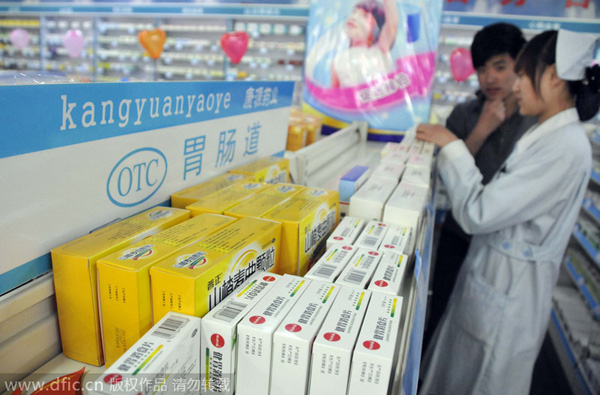Pharma law must be strictly enforced
(China Daily) Updated: 2015-11-16 08:15
|
 |
|
Man buys medicine with the help of a pharmacy sales person in Chongqing municipality, Southwest China, July 21, 2014. [Photo/IC] |
THE CHINA FOOD AND DRUG Administration recently announced its decision to reject eight drug enterprises' applications for the registration of 11 new drugs, saying their clinical test data was either false or incomplete. The hospitals that provided the data are being investigated. A Beijing News editorial calls for strict enforcement of the law because such drugs are related to people's health and even lives.
On July 22, the China Food and Drug Administration gave the pharmaceutical companies a chance to withdraw applications containing false data, yet such cheating was still found in the applications submitted.
It should be emphasized that drugs are a special product, as they are supposed to save lives and protect health. The hospitals that provided the false clinical data and the medical enterprises that used it are placing patients at risk.
The problem might even be worse than people have suspected. An official from the CFDA was previously quoted as saying that it was an open secret that false data was rampant in the pharmaceutical industry. How many kinds of medicines with false clinical data does China produce every year and how many are on the market? How many have already been used by patients? How many deaths and injuries have they caused?
According to the law, the pharmaceutical enterprises and hospitals involved face warnings, fines, even the withdrawal of their business licenses. In practice, the CFDA's penalties to those providing false data include: including them and their management on a black list and publishing their names, while the judiciary is responsible for dealing with those breaking the law.
A browse at past records finds that hardly had any hospital or pharmaceutical enterprise has been punished for providing false data. The law has seldom been effectively implemented and that's why false data is so rampant in the pharmaceutical industry.
In a document issued in July, the CFDA vowed zero tolerance toward those providing false clinical data. That's a good move, and it is time for the judiciary to strictly enforce the law so that the zero tolerance is not just empty words.











